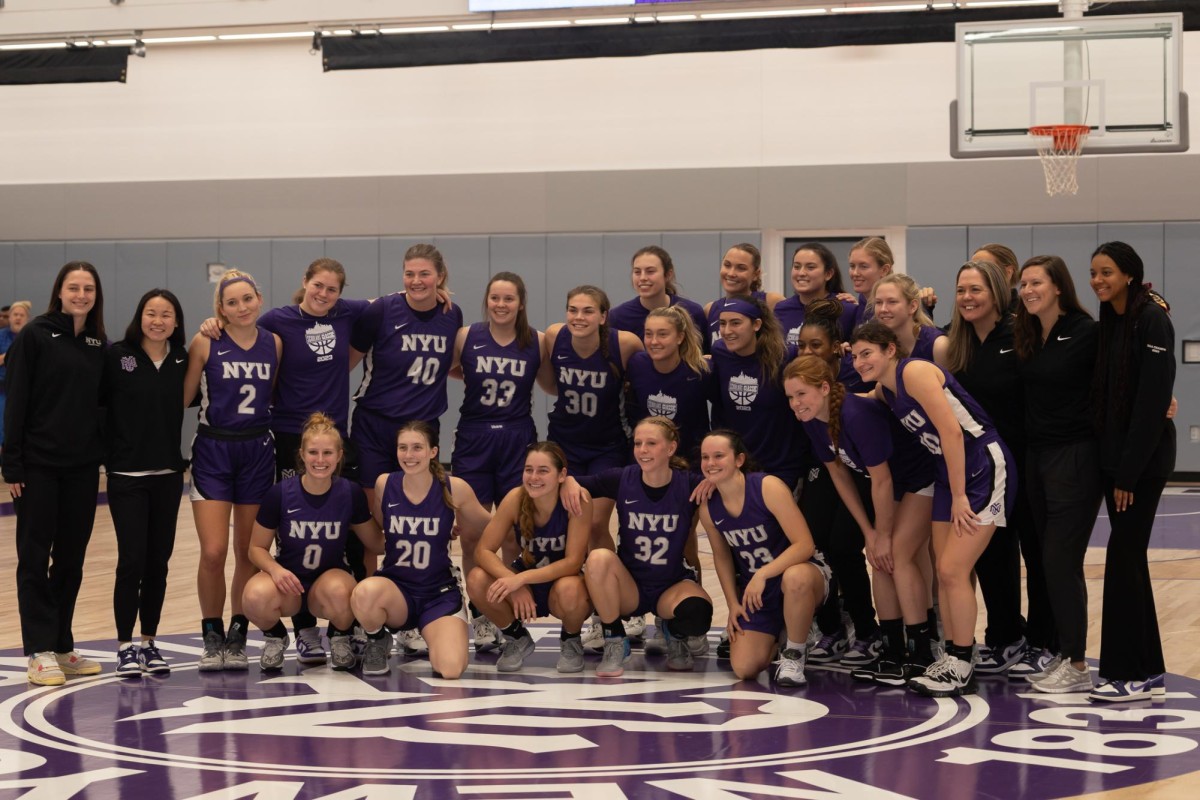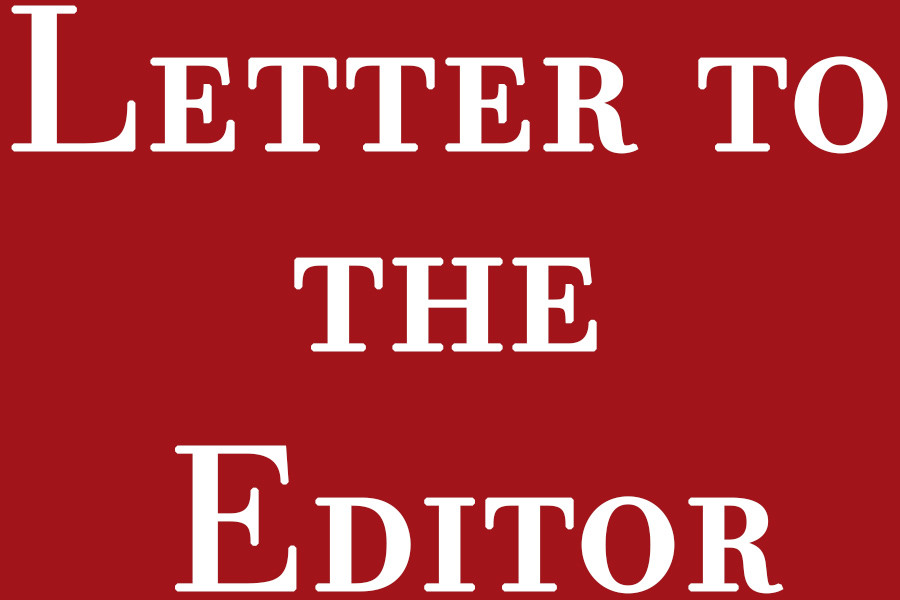Reply to LS Diversity, Equity and Inclusion Working Group
February 6, 2017
Now that I have returned from my leave of absence, I am addressing you in reply to your open letter, which you wrote in response to my interview with the Washington Square News. Although I have written about this elsewhere, including in the Washington Post, and have spoken about in it in several interviews, I am publishing this open reply in Washington Square News to make sure that you and the rest of the community have easy access to my response.
First, I would like to say how deplorable I think it was that an apparently official committee of NYU’s Liberal Studies Program responded to my interview and criticized my Twitter account as it did. The alacrity with which this committee rendered its guilty verdict served to validate my suspicions regarding the peril of openly opposing politically correct authoritarianism on campus. As several commentators in the media have suggested, your response was Stalinesque in its foreclosure of dissent and Orwellian in its double-speak. Many have noted the irony of a working group operating under the aegis of “Diversity, Equity and Inclusion” while demanding the exact the opposite — conformity, inequity and exclusion — conformity to a prescribed perspective, inequity for those who do not abide by it and exclusion from the university for those with the temerity to speak their minds. One wonders just what this working group might be working on, if not on ensuring ideological homogeneity within the domain supposedly under its purview. Is one not allowed another opinion without the possibility of official censure?
As for the kinds of campus policies and mechanisms that have been put in place over the past few years at NYU and elsewhere, I argue that they are not merely silly but also pernicious. Under the influence of Social Justice Warrior ideology, we now encounter demands for safe spaces to protect students from ideas that may disturb or trigger them. There is an expectation of deference to special identities wherever they go. We see the incursion of trigger warnings, which have the potential to scare students from particular materials; slippery slope that they are, trigger warnings may even undermine curricula, potentially banishing classic works of literature and art to the dustbin of history. We have Halloween costume surveillance under which students are not only shamed into compliance, but at one university – Tufts – could even face campus police arrest for donning an offensive costume. We have bias reporting lines, which turn the university and its surrounding environs into a veritable panopticon, with every one of its members acting as a sentinel of surveillance. So much like the terrorism reporting that many leftists scorn, the explicit rule amounts to the subway and train imperative: “If you see something, say something.”
I must say here that the committee’s suggestion that my argument lacked evidence is suggestive of the strong possibility that as members, you were not cognizant of the “social justice” developments taking place around the country in academia today. Your response to my interview would have been better had it been informed by the broader context and not merely your own experience within the Liberal Studies Program at NYU. If you have not since done so, I suggest that you begin to undertake some research. Many good sources exist. Although some are right-leaning (Campus Reform, The College Fix, etc.), I can attest to the fact that their reporting is generally accurate. I have checked the primary sources myself. But your own apparent lack of knowledge of trends in the academy does not equal a lack of evidence on my part.
In my original WSN interview, I suggested that the university – generally, not NYU in particular – had become a “hospital” under SJW ideology. What did I mean by that? I was referring to effects of the various SJW mechanisms – safe spaces, trigger warnings and bias reporting lines. As I have written about bias reporting lines elsewhere, I will limit my discussion to safe spaces here. The earliest use of safe spaces allowed beleaguered and oppressed minorities to meet in groups, free and safe from the interference of members of dominant identity groups. They were likewise valid and useful. Today’s college safe spaces are nothing of the sort. Instead, they amount to infirmaries for those who putatively experience adverse psychological symptoms in response to intellectual and social encounters. I am not being satirical when I say that some of these safe spaces have come to resemble pediatric units, replete with pacifiers, coloring books, crayons and therapy pets. If this is not hospitalization and infantilization, I do not know what is. Safe spaces have been established adjacent to auditoriums where such relatively “harmless” thinkers as Christina Hoff Sommers and Camille Paglia have spoken. As they are booed continuously by SJWs and unable to get a word in edgewise, those who might inadvertently hear something objectionable may nonetheless escape to a nearby safe space. Meanwhile, as the leftist responses to conservative speakers like Milo Yiannopoulos grow more violent, the speakers and their fans are blamed.
Taken together, these SJW mechanisms amount to the potential for a self-imposed, administrative and faculty-enabled cultural isolation of the kind that the Harlem Renaissance author Ralph Ellison lamented in his reply to socialist critic Irving Howe in 1964. Howe had suggested that Ellison’s fiction “Invisible Man” was not sufficiently black, and that he and James Baldwin must be appropriately angry to be a real black authors. In his essay “The World and the Jug,” Ellison responded by arguing that his influences, style and content were not limited by his identity, and that certainly they should not determined by someone else’s beliefs about his identity. Ellison further suggested that the kind of cultural containment that Howe demanded of him amounted to a ghettoization worse than Jim Crow. I worry that this is the very kind of cultural curtailment and containment that universities are enabling today.
Finally, my contention is that SJW ideology is not limited to campus SJWs themselves. Rather, it is now a dominant ideology. Powerful institutions, including the institutions of the academy but also mass media, social media, corporate America and government, wield it as a weapon. As numerous cases make clear, SJW ideology serves as a rationale and means to discipline and punish its subjects. And worse, SJW ideology serves to legitimate the status quo. It is now one of the primary means by which the capitalist order justifies itself: by pretending to a kind of radical egalitarianism under the banner of diversity, equity and inclusion, SJW ideology actually serves to legitimize real material and social inequity.
Lastly, SJW ideology is a religion, replete with unverified and unverifiable dogmas, such as the claim that there is no such thing as biological sex. Like religious fundamentalists, the defenders of SJW dogma do not even permit inquiry or discussions of such questions. Those who dare to address them are deemed sexist or worse. And SJW ideology includes its own form of original sin – whiteness/masculinity – although, unlike Christianity, which at least included some notion of mercy, it does not even hold out the possibility for redemption. Identities are inescapable traps.
Thus, it is my contention that SJW ideology must be rigorously exposed and opposed, both within the university and beyond it. I am sorry that Donald Trump was elected President of the United States, but even that does not justify this creeping totalitarianism.
A version of this article appeared in the Monday, Feb 6. print edition. Email Michael Rectenwald at [email protected].













































































































































Walden • Feb 6, 2017 at 10:14 pm
You misssd his point. It was an official denunciation.
NYUStudent • Feb 6, 2017 at 5:53 pm
“I would like to say how deplorable I think it was that an apparently official committee of NYU’s Liberal Studies Program responded to my interview and criticized my Twitter account as it did.” lol of course this free speech champ would be so outraged at people daring to write a letter criticizing him